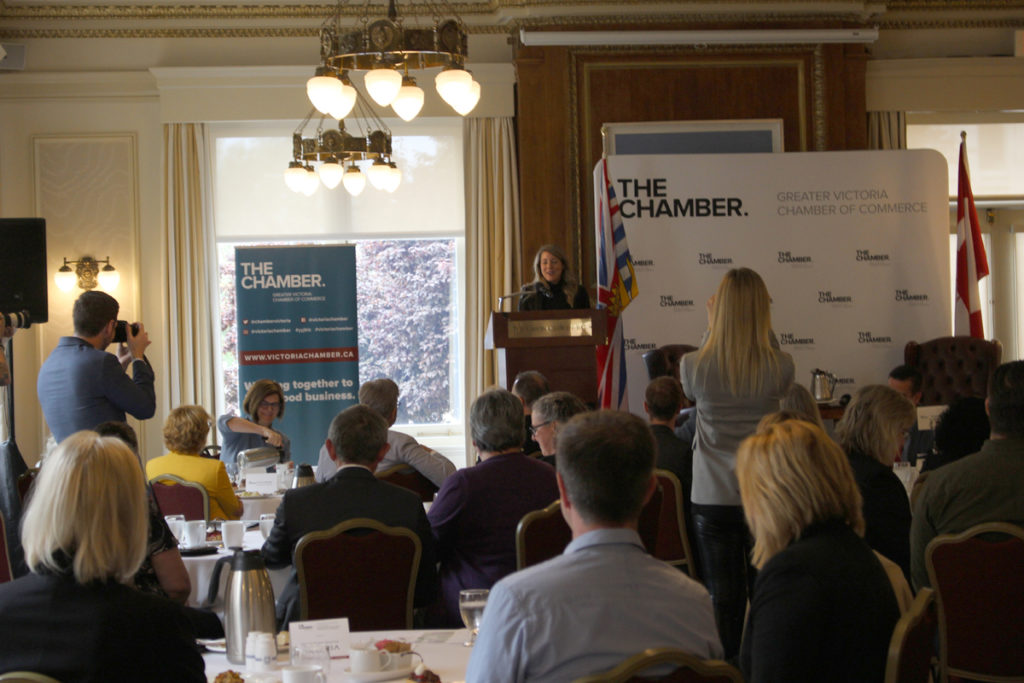
Monday, May 13, 2019 ~ VICTORIA.
by Mary P Brooke ~ West Shore Voice News
“Tourism is the second biggest industry in BC. Our government believes in this sector,” said Mélanie Joly, federal Minister of Tourism, Official Languages and La Francophonie, in her opening remarks at a Victoria Chamber of Commerce lunch at The Union Club in downtown Victoria today.
To an audience of about 70 people, Minister Joly made a good case for news that is exciting to the tourism industry: there will now be a seventh economic table in the federal economic sectors profile. This might sound administrative, but it opens a lot of doors for expanding tourism across the country, including fostering investment in tourism products and services, job creation (both skilled and general labour), and crafting a new process through which skilled immigrants can bring themselves and their families to Canada.

Later on, someone in the audience told Joly that her enthusiasm and level of engagement for tourism are greatly appreciated, with concurrence in the room on that.
This group of business people today got the inside scoop, as the official announcement doesn’t come nationally until after the long weekend on May 21.
In BC, Joly sees added attention to tourism — including by federal Deputy Ministers assigned to focus on it in several ministries — with the expenditure of $60 million over two years.
Joly has high hopes for the new program that rolls out next week, including support for winter and off-season product development, a boost to culinary tourism, stronger indigenous tourism, highlighting LGBT tourism as a new sector, and promoting tourism investment in rural and remote regions.
Food is a big interest in tourism and reasons to travel. Joly says that 30% of international tourism choices are based on gastronomy of the trip destination, whereas apparently only 8% of international travellers choose Canada as a destination based on the exploration of food. She feels that can change.
Remote and rural areas that are losing their traditional fishing, mining or forestry industries can look to tourism as a way to turn around their local economies.
She also gave examples of how certain industries — like airlines — can think about themselves as part of the tourism industry instead of just as transportation. With this attitude to inclusion for a wider range of businesses and industries, tourism as a whole can experience almost a spontaneous boost from a shared awareness of cross-industry common goals.
Joly’s clarity about the small- and medium-size enterprise (SME) sector was appreciated by the Chamber audience. She said that 99% of businesses in the tourism sector are SME’s and that generally they have no time to lobby government and organize themselves.
About 180,000 new jobs could be created in the tourism sector with the support of the new tourism program, said Joly.


